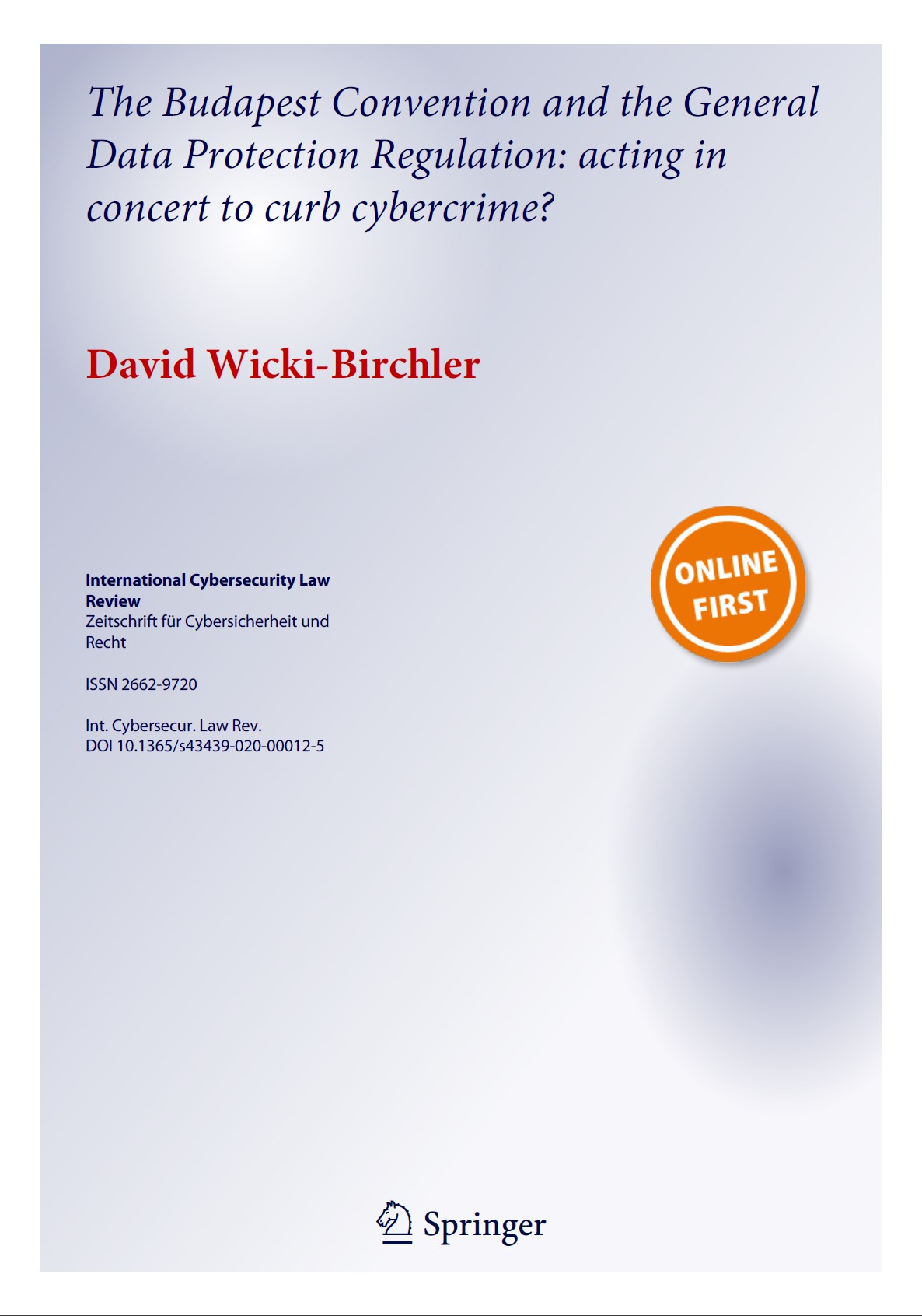In den Nachrichten.
Dr. David Wicki, LL.M., überprüfte zwei Legal Frameworks zur Eindämmung von Cyberkriminalität, veröffentlicht in der
International Cyber Security Law Review 9/2020 (Springer)
Das Budapester Übereinkommen gegen Cyberkriminalität und die Europäische Datenschutzverordnung:
Gemeinsam handeln, um die Cyberkriminalität einzudämmen?
Während das Übereinkommen des Europarates über Cyberkriminalität, die Budapester Konvention, das einzige verbindliche internationale Instrument zu diesem Thema ist, setzt die GDPR weltweit Standards im Datenschutzrecht.
Wie arbeiten die beiden Regularien zusammen, um die Cyberkriminalität einzudämmen?
Abstract
Cybercrime concerns every person, every company, every authority and every public institution. The fact that the origin as well as the target of the criminal act can be located virtually everywhere around the globe sets a new challenge for lawmakers in their efforts to protect society. The increasing use and importance of the Internet of Things will create new conveniences for the public to enjoy and at the same time provide countless new entry points for hackers to gain access to devices, networks and valuable data, all of which might be abused for criminal intents.
The Budapest Convention on Cybercrime plays a crucial role in the fight against cybercrime by setting state of the art principle based criminal law standards and important procedural rules with regard to the provisional storage of data to be potentially used as evidence in prosecuting criminal acts.
GDPR is blazing the trail for the appropriate handling of data, and is thereby — albeit from a different starting point — significantly contributing to an improved data security framework and thus efficiently curbing cybercrime.

